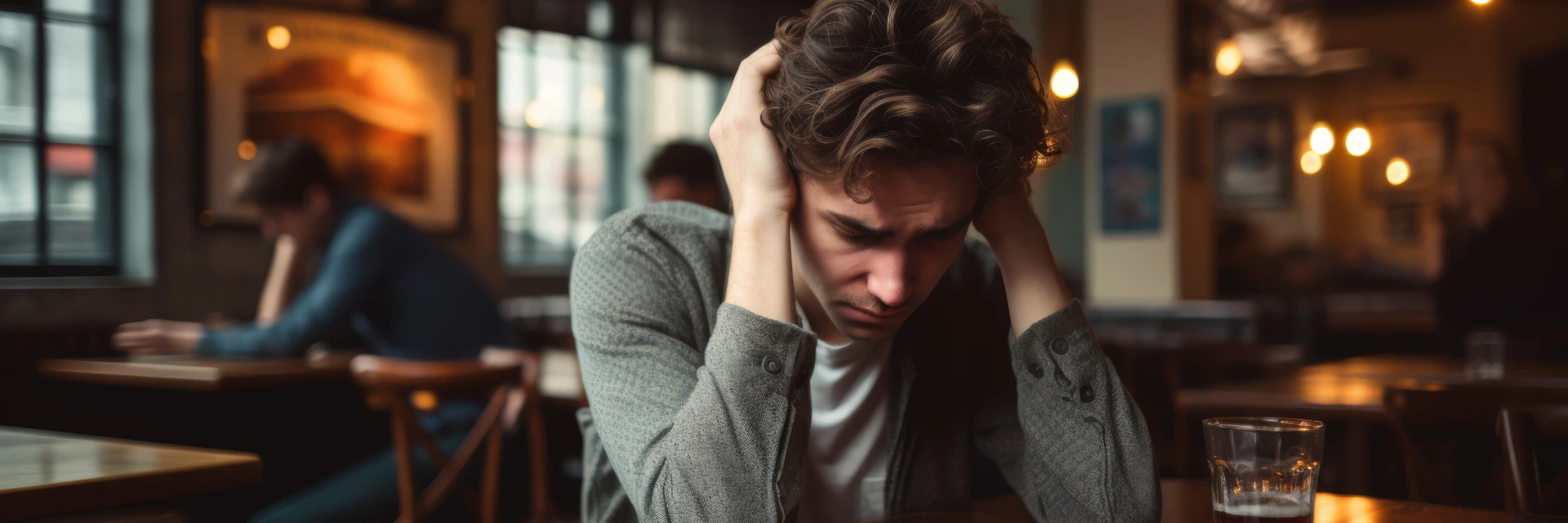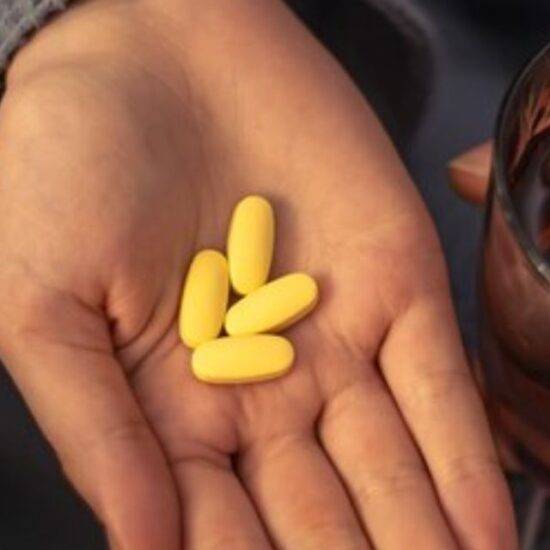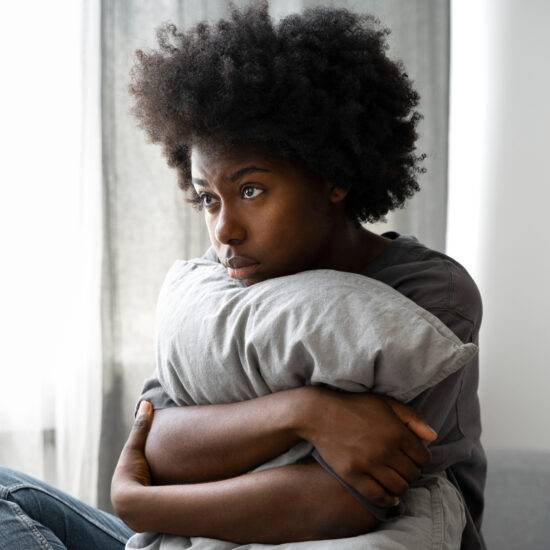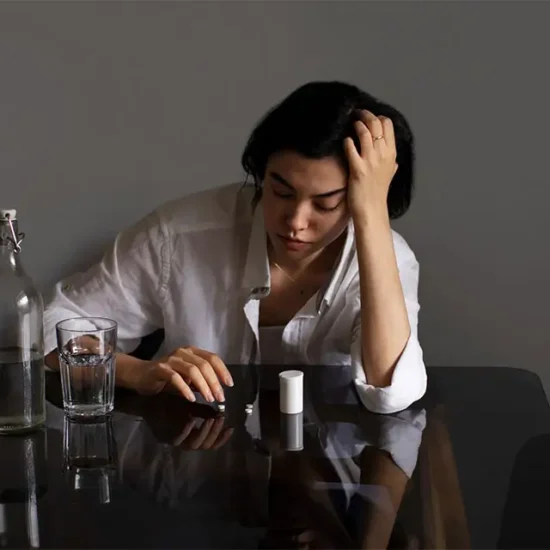Bipolar depression is a serious mental health condition that affects millions worldwide. When it’s paired with alcohol abuse, the combination becomes even more dangerous. For those living with bipolar disorder, the impact of alcohol abuse can worsen symptoms and create a toxic cycle that’s hard to escape. This blog will explore the link between bipolar depression and alcohol abuse, the effects of alcohol on bipolar disorder, and the risks of alcohol abuse for people living with this mental illness.
Link between Bipolar Depression and Alcohol Abuse Disorder
People with bipolar depression often turn to alcohol as a way to cope with their intense emotions. Whether they are in a depressive state or a manic episode, alcohol may seem like a quick fix for temporary relief. However, it can quickly turn into a serious problem. Bipolar depression and alcohol abuse often coexist, making it harder for individuals to control their mood swings and emotional stability.
Alcohol is a depressant, and when consumed by someone with bipolar disorder, it can make depressive episodes more intense and frequent. Manic episodes can also become more extreme due to impaired judgment and heightened impulsivity from drinking.
How does alcohol affect bipolar disorder?
The effects of alcohol on bipolar disorder are significant and often dangerous. Alcohol directly interferes with brain chemistry, worsening mood swings and making it harder for individuals to maintain emotional stability. For someone with bipolar depression, consuming alcohol can lead to longer periods of depression or trigger unexpected manic episodes. In either case, it complicates their mental health journey.
- Mood: Alcohol can make mood swings worse for people with bipolar disorder. It can make manic episodes more intense, with impulsive actions and restlessness, or deepen depressive episodes, causing extreme sadness and withdrawal. This can make it harder to stabilize their mental health.
- Judgment: Alcohol affects judgment, leading to risky and impulsive decisions. For someone with bipolar disorder, this can make their symptoms worse. They might take dangerous actions during mania or act on negative feelings of depression, worsening their mental health.
- Medications: Alcohol can interfere with bipolar medications like mood stabilizers or antidepressants, making them less effective. This makes it harder to manage symptoms and may lead to harmful side effects like increased sedation, liver damage, or worsened mental health.
Can alcohol abuse worsen bipolar depression?
Yes, alcohol abuse can worsen bipolar depression. Alcohol may provide temporary relief from feelings of sadness or anxiety, but it ultimately deepens depression. People with bipolar depression often experience longer and more severe depressive episodes when alcohol is involved. Over time, the body becomes dependent on alcohol, which makes it harder to break the cycle of depression and addiction.
- Dependence: Regular alcohol use can lead to addiction, trapping the person in a cycle of dependence.
- Sleep: Alcohol disrupts sleep patterns, which are already fragile in people with bipolar disorder. Poor sleep can trigger more intense mood swings and emotional instability.
- Health: Prolonged alcohol abuse affects overall health, including liver damage and increased anxiety, worsening the emotional and physical state of those with bipolar depression.
Risks of Alcohol Abuse to People with Bipolar Depression
The risks associated with alcohol abuse for people with bipolar depression are life-altering. Alcohol abuse doesn’t just worsen mental health—it also impacts physical health, relationships, and the ability to maintain a stable life.
- Suicide: People with bipolar depression are already at higher risk of suicide, and alcohol abuse increases that risk. Alcohol lowers inhibitions, which may make impulsive decisions like suicide attempts more likely.
- Relationships: Alcohol abuse can strain relationships, leading to isolation and further worsening of depressive symptoms. Friends and family may distance themselves from the person due to erratic behavior, deepening the person’s sense of loneliness.
- Work: Alcohol abuse can affect job performance, making it harder to focus, meet deadlines, and maintain employment. This can lead to financial instability, which in turn can worsen depression.
- Physical health: Long-term alcohol abuse increases the risk of liver disease, heart problems, and other health complications. These physical issues can add to the emotional burden of bipolar depression.
FAQs
Q: What does alcohol do to a bipolar person?
A: Alcohol can make bipolar disorder symptoms worse. It may increase mood swings and lead to impulsive behaviors. For some, alcohol can trigger manic or depressive episodes. Drinking may also interfere with medications, making it harder to manage the condition and maintain stability.
Q: What is the first red flag of bipolar disorder?
A: The first red flag of bipolar disorder is often extreme mood changes. A person might feel very happy, energetic, and confident, then suddenly become sad, irritable, or hopeless. These shifts are more intense than typical mood swings and can disrupt daily life.
Q: What is a bipolar blackout?
A: A bipolar blackout happens when someone experiences a manic or depressive episode and loses memory of their actions during that time. These blackouts are often linked to impulsive or risky behaviors, leaving the person unaware of what occurred, similar to an alcohol-induced blackout.
Q: What are bipolar eyes?
A: “Bipolar eyes” refers to the intense, wide-eyed expression some people display during manic episodes. Their eyes may seem overly bright or restless, reflecting the heightened energy and excitement of mania. It’s a visual cue of the person’s elevated mental and emotional state.
Conclusion
The connection between bipolar depression and alcohol abuse is dangerous. While alcohol may offer temporary relief, it ultimately worsens symptoms, deepens depression, and creates a cycle of addiction that is hard to break. People with bipolar disorder should be aware of the risks of alcohol and seek support when needed. By understanding the harmful effects of alcohol abuse, they can take steps to protect their mental and physical health.
Managing bipolar depression requires support, proper treatment, and avoiding substances like alcohol that can make things worse. Breaking free from the grip of alcohol abuse can be a significant step toward living a healthier, more stable life with bipolar disorder.
If you or someone you know is struggling with bipolar depression and alcohol abuse, don’t hesitate to reach out for support. BHouses encourages you to take that first step toward understanding the dangerous connection and finding ways to protect your mental health.










